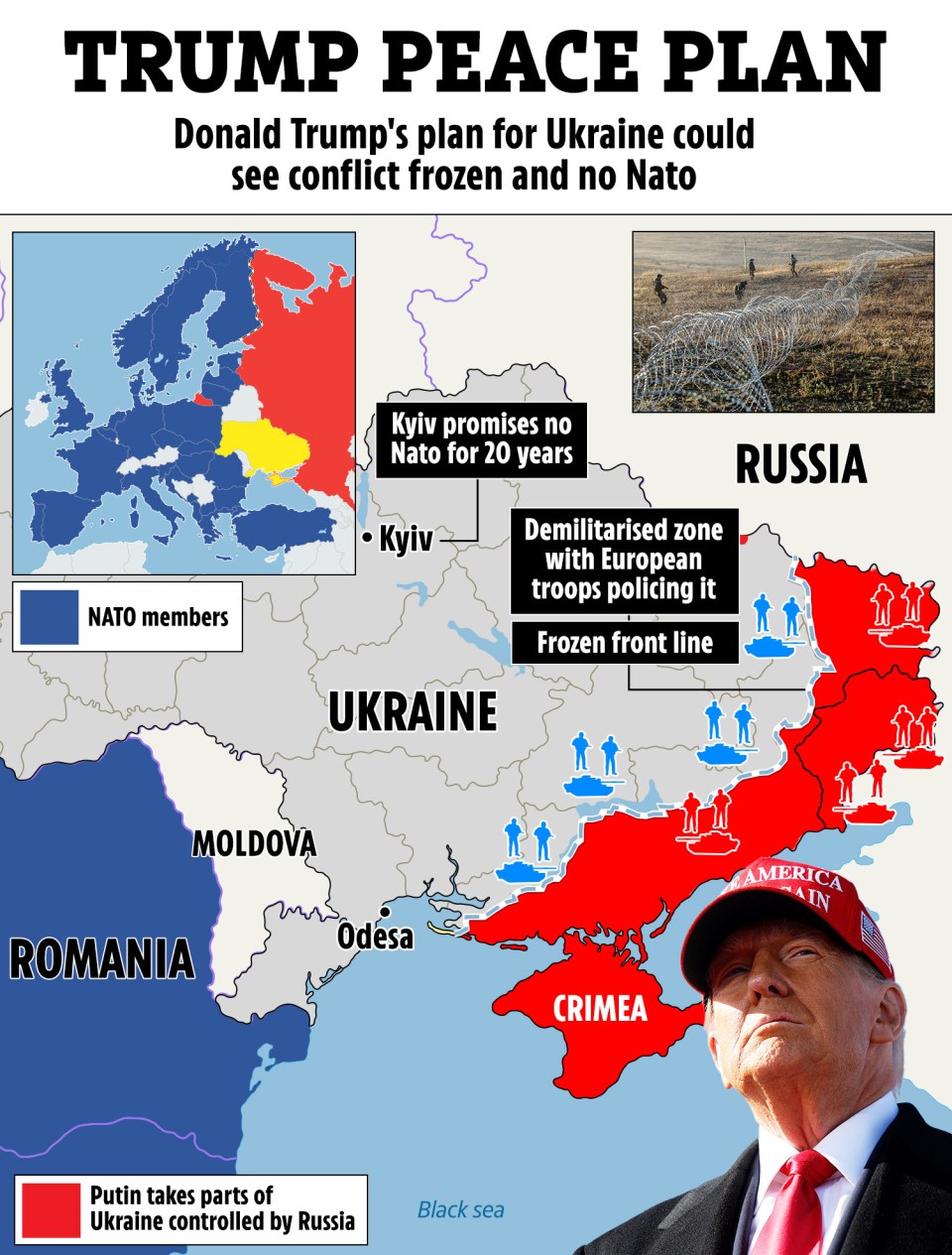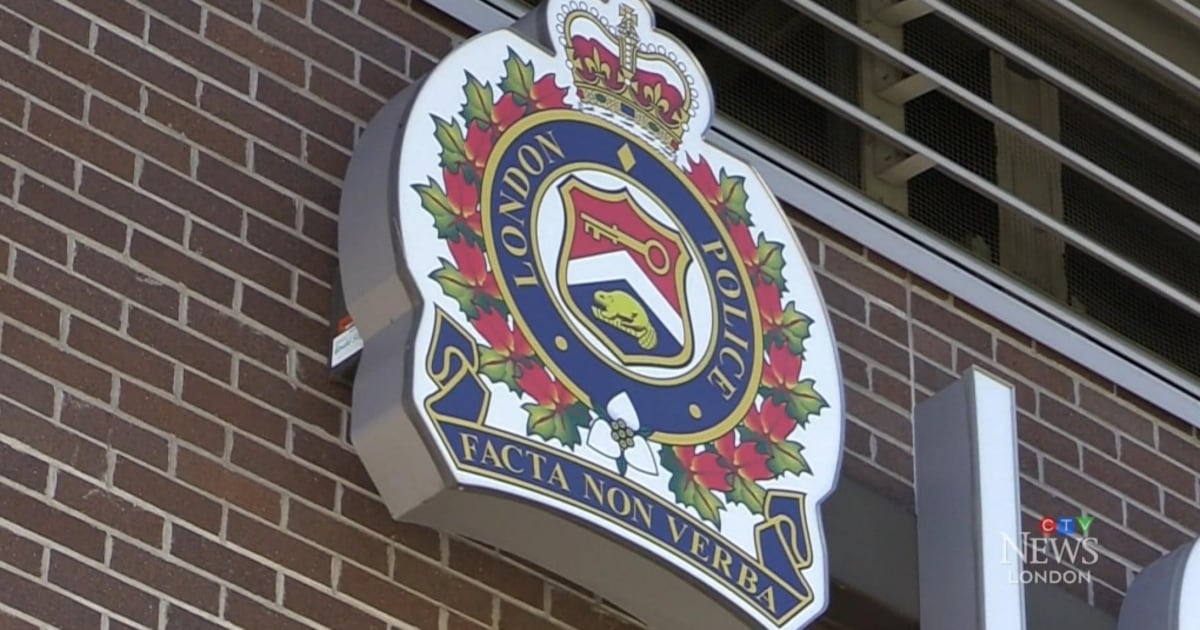US Peace Plan For Ukraine: Potential Easing Of Russia Sanctions

Table of Contents
Key Components of a Potential US Peace Plan
A hypothetical US peace plan for Ukraine would likely involve a multifaceted approach, encompassing several key components aimed at achieving a lasting ceasefire and resolving the conflict. While no concrete plan has been publicly released, potential elements could include:
-
Territorial compromises and potential land swaps: This could involve Ukraine ceding some territory currently occupied by Russia in exchange for peace and security guarantees. This element is highly controversial and would require significant concessions from both sides. Negotiations around specific territorial boundaries would be incredibly complex and fraught with emotion.
-
Security guarantees for Ukraine from NATO or other international bodies: Providing robust security assurances to Ukraine is vital to prevent future Russian aggression. This could involve NATO membership, security partnerships with other countries, or a strong international security framework. The specifics would need to be carefully negotiated to address Ukraine's security concerns while balancing the interests of NATO allies.
-
Demilitarization zones and conflict resolution mechanisms: Establishing demilitarized zones along the border could help reduce tensions and prevent further escalations. This would necessitate the implementation of effective monitoring mechanisms to ensure compliance from both sides. Furthermore, impartial conflict resolution mechanisms would be crucial for addressing disputes and grievances.
-
International monitoring and verification processes: Independent international organizations would play a vital role in verifying compliance with any peace agreement. This would involve on-the-ground monitoring of troop movements, weapons deployments, and adherence to ceasefire agreements. Transparency and accountability are critical for building trust and ensuring the long-term success of the peace plan.
-
Mechanisms for addressing humanitarian concerns and refugee resettlement: A key component of any lasting peace must address the humanitarian crisis resulting from the conflict. This includes providing aid to displaced populations, facilitating the return of refugees, and rebuilding infrastructure. International cooperation will be essential to effectively address these pressing humanitarian challenges.
Arguments for Easing Russia Sanctions
Advocates for easing Russia sanctions as part of a peace deal argue that such a move could be strategically beneficial:
-
Incentivizing Russia to negotiate and participate in peace talks: Relaxing sanctions could incentivize Russia to engage constructively in negotiations, as it would provide immediate economic benefits. This is a crucial element if a peaceful resolution is to be reached.
-
Relieving economic hardship on the Russian population, potentially reducing support for the war: Sanctions have undoubtedly caused significant economic hardship for many Russian citizens. Easing these sanctions, while carefully targeted, could reduce public support for the war and potentially influence Russia's willingness to compromise.
-
Facilitating the rebuilding of Ukraine's infrastructure with Russian cooperation: Russia possesses significant resources and expertise that could be essential in rebuilding Ukraine's devastated infrastructure. Easing sanctions could pave the way for collaborative reconstruction efforts.
-
Promoting economic stability and preventing further global economic disruption: The ongoing conflict has contributed to significant global economic instability. Easing sanctions could help mitigate some of these negative impacts, restoring a degree of normalcy to international markets.
-
Creating a pathway for normalizing relations between Russia and the West: A phased easing of sanctions, tied to demonstrable progress towards peace, could offer a pathway for normalizing relations between Russia and the West, ultimately contributing to greater global stability.
Economic Implications of Sanctions Easing
Easing Russia sanctions would have profound economic implications, both positive and negative:
-
Impact on global energy markets (oil and gas prices): Russia is a major energy producer. Easing sanctions could increase the supply of oil and gas, potentially lowering prices globally, but also potentially undermining efforts to transition to cleaner energy sources.
-
Effect on financial markets and investment flows: A shift in sanctions policy could trigger significant volatility in financial markets. Increased investment in Russia would need to be carefully balanced with considerations of risk and potential for corruption.
-
Changes in trade relations between Russia and the West: Relaxing sanctions would lead to increased trade between Russia and Western countries. This would need to be managed responsibly to ensure it doesn't inadvertently benefit the Russian military-industrial complex.
-
Consequences for the Russian and Ukrainian economies: The impact on the Russian and Ukrainian economies would be complex and highly dependent on the specific terms of sanctions relief. Careful management is needed to prevent undue hardship in Ukraine, especially considering the ongoing reconstruction needs.
-
The potential for sanctions evasion and circumvention: Easing sanctions increases the risk of evasion and circumvention. Robust monitoring and enforcement mechanisms would be crucial to minimize the effectiveness of any sanctions relief efforts.
Arguments Against Easing Russia Sanctions
Opponents of easing sanctions argue that doing so would be strategically unwise and morally reprehensible:
-
Concerns about rewarding aggression and setting a dangerous precedent: Easing sanctions could be interpreted as rewarding Russia's aggressive actions and emboldening other authoritarian regimes to pursue similar tactics.
-
The need to hold Russia accountable for war crimes and human rights abuses: Maintaining pressure on Russia through sanctions is essential for holding it accountable for its war crimes and human rights violations. Easing sanctions would undermine accountability efforts.
-
Risks of Russia exploiting any sanctions relief to further its military ambitions: Russia might use any sanctions relief to bolster its military capabilities, undermining efforts to achieve lasting peace. Continued pressure through targeted sanctions can help prevent this.
-
The importance of maintaining strong international unity against Russia's actions: Easing sanctions could fracture international unity against Russia's aggression, weakening the collective pressure needed to achieve a peaceful resolution.
-
Potential for undermining the effectiveness of future sanctions regimes: Easing sanctions now could weaken the credibility and effectiveness of future sanctions regimes, reducing their deterrent value.
The Role of International Actors
The involvement of international actors is crucial for any successful peace plan. The positions and actions of these actors will significantly influence the possibility of easing Russia sanctions:
-
The position of the United States and its European allies: A coordinated approach between the US and its European allies is essential for any effective sanctions policy. Disagreements among these key players could undermine the effectiveness of sanctions relief efforts.
-
The role of international organizations like the UN and OSCE: Organizations like the UN and OSCE could play important roles in monitoring compliance with any peace agreement and providing humanitarian assistance.
-
Influence of other global powers (China, etc.) on negotiations and sanctions policy: The influence of other global powers, particularly China, could significantly impact negotiations and sanctions policy. Their involvement needs careful consideration.
-
Potential for international disagreements and lack of consensus: Reaching a consensus among international actors on sanctions relief is a significant challenge. Disagreements among these players could derail peace negotiations.
-
The challenges of coordinating a unified international response: Coordinating a unified international response to the crisis is complex, requiring sustained diplomatic effort and compromise from all involved parties.
Conclusion
The potential easing of Russia sanctions as part of a US peace plan for Ukraine presents a complex and multifaceted challenge. While arguments exist for both relaxing and maintaining sanctions, careful consideration of the economic, political, and humanitarian ramifications is crucial. Any decision must balance the desire for peace with the imperative to hold Russia accountable and deter future aggression. Further analysis and discussion of a US peace plan for Ukraine, including the crucial aspect of potential Russia sanctions easing, are necessary to navigate this delicate situation successfully. Understanding the diverse perspectives and weighing the potential outcomes are paramount in finding a path towards sustainable peace and security. The development of a comprehensive and effective US peace plan for Ukraine, including the strategic consideration of Russia sanctions easing, requires careful consideration of all viewpoints and potential consequences.

Featured Posts
-
 Canada Post Strike Threat Impact On Customer Base
May 27, 2025
Canada Post Strike Threat Impact On Customer Base
May 27, 2025 -
 Ice Cubes Last Friday Movie A Deal Confirmed
May 27, 2025
Ice Cubes Last Friday Movie A Deal Confirmed
May 27, 2025 -
 Canada Posts Struggle How A Strike Could Alienate Customers
May 27, 2025
Canada Posts Struggle How A Strike Could Alienate Customers
May 27, 2025 -
 Five In Custody Following Drug And Weapons Investigation
May 27, 2025
Five In Custody Following Drug And Weapons Investigation
May 27, 2025 -
 A Third Partys Influence Gwen Stefanis Marriage Revelation
May 27, 2025
A Third Partys Influence Gwen Stefanis Marriage Revelation
May 27, 2025
